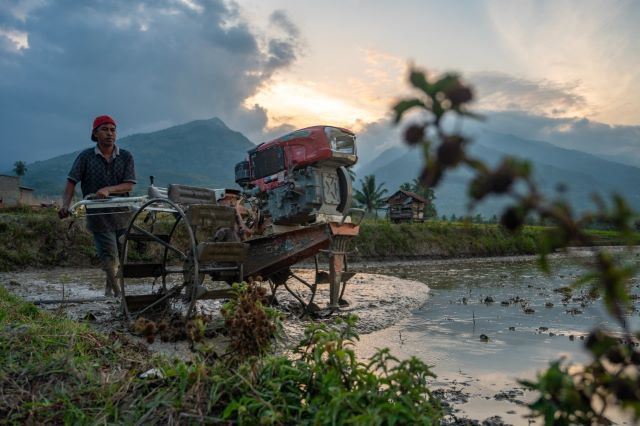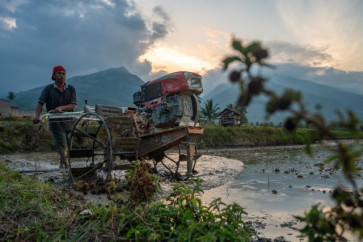Popular Reads
Top Results
Can't find what you're looking for?
View all search resultsPopular Reads
Top Results
Can't find what you're looking for?
View all search resultsLeveraging circular economy to tackle food loss and waste
The circular economy model applied to the agrifood sector can help address food loss and waste, but its success hinges on a collaborative effort involving all stakeholders, from the government to businesses and from farmers to consumers.
Change text size
Gift Premium Articles
to Anyone
E
very year on Sept. 29, the world commemorates the International Day of Awareness of Food Loss and Waste. The day always serves as a poignant reminder of the alarming paradox of our times: while millions go to bed hungry every night, one-third of all food produced globally is lost or wasted.
Many have suggested that food loss and waste is not only a moral dilemma but also a grave environmental issue, given the carbon footprint of the emissions produced by lost or wasted food. A study conducted by the Food and Agriculture Organization (FAO) shows that global food loss and waste contribute up to 10 percent of greenhouse gas (GHG) emissions on the planet.
Food loss and waste also have economic implications, as it represents lost income for farmers and businesses along the food supply chain. The National Development Planning Agency (Bappenas) has revealed that food loss and waste in Indonesia has led to economic losses estimated at between Rp 213 trillion (US$14 billion) and Rp 551 trillion. This figure represents roughly 5 percent of Indonesia's gross domestic product.
In a world grappling with the daunting challenges of climate change, resource depletion and population growth, food loss and waste has emerged as a paramount concern. The traditional linear model of production and consumption, characterized by take-make-dispose, is proving unsustainable and detrimental to both the environment and our ability to feed the global populace.
The concept of a circular economy has emerged as a beacon of hope. At its core, the circular economy seeks to minimize waste, extend the life of products and maximize the utilization of resources.
Scientists define a circular economy as an economic system designed to ensure that maximum use is extracted from resources and minimum waste is generated for disposal. The circular economy as a concept is not new and has been evolving for several decades, but it gained significant prominence in the early 20th century in various countries worldwide, including Indonesia.
Over the past few years, circular economy principles were gradually integrated into government policies and regulations. The circular economy is now a prominent component of the National Medium-Term Development Plan (RPJMN) 2020-2024. It also has been established as one of the priorities in the National Long-Term Development Plan (RPJPN) 2025-2045. As a concrete step, the government has established Low Carbon Development Indonesia (LCDI), an office under the National Development Planning Ministry/Bappenas to accelerate the development of a circular economy in the country.



















